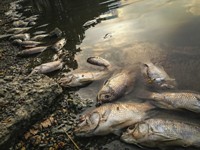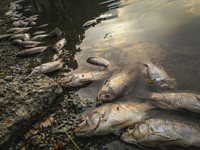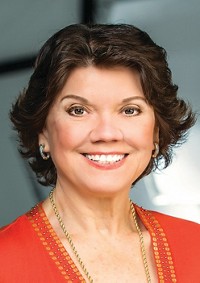Advertisement
Grab your lab coat. Let's get started
Welcome!
Welcome!
Create an account below to get 6 C&EN articles per month, receive newsletters and more - all free.
It seems this is your first time logging in online. Please enter the following information to continue.
As an ACS member you automatically get access to this site. All we need is few more details to create your reading experience.
Not you? Sign in with a different account.
Not you? Sign in with a different account.
ERROR 1
ERROR 1
ERROR 2
ERROR 2
ERROR 2
ERROR 2
ERROR 2
Password and Confirm password must match.
If you have an ACS member number, please enter it here so we can link this account to your membership. (optional)
ERROR 2
ACS values your privacy. By submitting your information, you are gaining access to C&EN and subscribing to our weekly newsletter. We use the information you provide to make your reading experience better, and we will never sell your data to third party members.
Environment
International Panel On Chemical Pollution
July 20, 2009
| A version of this story appeared in
Volume 87, Issue 29
We are grateful for the opportunity to introduce a new organization, the International Panel on Chemical Pollution (IPCP), to the readers of C&EN. This letter is in response to the article "Tension Arises among Scientific Groups Offering Advice to UN," (C&EN, June 1, page 22), where IPCP is mentioned.
More reactions from readers
Reactions
IPCP is intended as a platform for independent scientists-that is, academic scientists or scientists working with governmental research institutions-to make joint contributions to decision-making processes at the national and international level. Examples are the support of the Strategic Approach to International Chemicals Management (SAICM) or of the implementation of international treaties such as the Stockholm Convention on Persistent Organic Pollutants. IPCP is a nongovernmental organization (NGO) that is active at the international level and that collaborates with national governments, international organizations, and scientific societies.
IPCP will avoid duplication of any work being done by existing intergovernmental organizations or by national authorities, but it intends to complement those groups' efforts with its own contribution. To achieve this goal, IPCP will build on collaborations with scientific societies, including the Society of Environmental Toxicology & Chemistry (SETAC), the International Union of Pure & Applied Chemistry (IUPAC), and the International Union of Toxicology (IUTOX). IPCP and SETAC, which is mentioned in the C&EN article, have agreed to combine their efforts to deliver scientific knowledge on chemical pollution problems to various stakeholders. In a similar way, IPCP is establishing collaborative relationships with other scientific societies.
In May 2009, we attended the 2nd International Conference on Chemicals Management (ICCM2) in Geneva as representatives of IPCP. At ICCM2, participants discussed how scientific input to the SAICM process could be provided. All four groups mentioned above were involved in this discussion. No single organization is in a position to receive a specific mandate to provide input to the SAICM process, because this may create the impression that the process is not sufficiently open for all groups or stakeholders. Nevertheless, we think that arrangements helping scientific groups to provide input to the SAICM process would be useful.
Another question raised at ICCM2 was whether a United Nations panel on chemicals should be established. Viveka Bohn, chair of ICCM1 in 2006, proposed this in her opening speech at ICCM2. IPCP expressed its support for this proposal in the plenary of ICCM2, but we would like to point out that the status of IPCP as an NGO implies that it will remain institutionally independent of a potential UN panel.
Martin Scheringer
Swiss Federal Institute of Technology
Zurich
Åke Bergman
Stockholm University
Stockholm





Join the conversation
Contact the reporter
Submit a Letter to the Editor for publication
Engage with us on Twitter